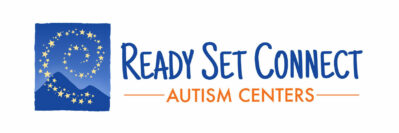Receiving an autism diagnosis can result in a mix of emotions. You are relieved you finally have a reason for all of the behaviors you have been noting, and you now have access to services to help them. However, it also starts the emotional journey of accepting the diagnosis.
As you work to accept the diagnosis, you will encounter yet another challenge: whether or not to disclose the diagnosis to fellow parents. As far as our knowledge as a society of autism has come, stereotypes still prevail, and they might not notice the more subtle behaviors some children exude.
With that in mind, the conversations you will have with the parents of your child’s peers can be crucial. Though they can seem like tricky conversations at first, with these steps you can foster understanding and create an inclusive environment for your child, while maintaining a support system for yourself.
Focus On Behaviors
When explaining autism, it’s often more helpful to discuss specific behaviors rather than labeling them under a broad category. By doing so, you provide a clearer picture of your child’s unique traits, challenges, and abilities.
For example, instead of simply stating your child struggles socially, you could explain how they exhibit challenges with reading social cues from peers. Instead of telling them your child has communication difficulties, explain that they express themselves using an AAC device. This will invite the parent into your child’s world, and help them to understand the child more deeply.
Encourage Questions
Inviting questions allows you to not only share information, but give the other parent more of an idea of what autism is and the variety of ways it presents. You are providing the parent an opportunity to move beyond their initial perceptions and understand the practical and emotional aspects of your child’s daily life.
As you communicate openly about autism with other parents, you can correct misconceptions, and make your child’s unique experiences more at the center. For instance, if a fellow parent seems surprised about how verbal your child is and inquires about it, you can take the opportunity to share that your child loves to share information verbally but struggles with back-and-forth conversation.
Remind Them It Is A Spectrum
Autism Spectrum Disorder encompasses a wide range of abilities and challenges, which means the strategies and approaches that work for one child may not be suitable for another. By reminding other parents about the spectrum nature of autism, you advocate for an environment where their distinct needs are recognized.
Maintain A Positive Tone
Despite the challenges that come with autism, emphasizing the positive aspects, such as your child’s unique abilities and improvements, can help in painting a fuller picture of your child.
A positive tone can also encourage a more hopeful and supportive response from other parents. When other parents hear your optimism and witness the joy and pride you have for your child’s achievements, it can significantly influence how they perceive and interact with your child.
Offer Resources
Sharing reliable resources like books (including children’s books), articles, or documentaries can provide other parents with valuable insight into autism, equipping them to be more empathetic and informed.
It also shows your willingness to foster a community of understanding and support for your child, as these resources can serve as a common ground for discussions and shared learning experiences.
Talking about your child’s autism diagnosis with other parents may initially seem challenging, but with the right approach, it can lead to the formation of an understanding community. It takes a village to raise a child, and fostering support among fellow parents is a step towards creating a compassionate village for your child to thrive in.
For more information on how to proceed after receiving an autism diagnosis, reach out to Ready Set Connect here.
Resources:
https://childmind.org/article/sharing-an-autism-diagnosis-with-family-and-friends/
Talking To Other Parents About Your Child’s Autism Diagnosis
Receiving an autism diagnosis can result in a mix of emotions. You are relieved you finally have a reason for all of the behaviors you have been noting, and you now have access to services to help them. However, it also starts the emotional journey of accepting the diagnosis.
As you work to accept the diagnosis, you will encounter yet another challenge: whether or not to disclose the diagnosis to fellow parents. As far as our knowledge as a society of autism has come, stereotypes still prevail, and they might not notice the more subtle behaviors some children exude.
With that in mind, the conversations you will have with the parents of your child’s peers can be crucial. Though they can seem like tricky conversations at first, with these steps you can foster understanding and create an inclusive environment for your child, while maintaining a support system for yourself.
Focus On Behaviors
When explaining autism, it’s often more helpful to discuss specific behaviors rather than labeling them under a broad category. By doing so, you provide a clearer picture of your child’s unique traits, challenges, and abilities.
For example, instead of simply stating your child struggles socially, you could explain how they exhibit challenges with reading social cues from peers. Instead of telling them your child has communication difficulties, explain that they express themselves using an AAC device. This will invite the parent into your child’s world, and help them to understand the child more deeply.
Encourage Questions
Inviting questions allows you to not only share information, but give the other parent more of an idea of what autism is and the variety of ways it presents. You are providing the parent an opportunity to move beyond their initial perceptions and understand the practical and emotional aspects of your child’s daily life.
As you communicate openly about autism with other parents, you can correct misconceptions, and make your child’s unique experiences more at the center. For instance, if a fellow parent seems surprised about how verbal your child is and inquires about it, you can take the opportunity to share that your child loves to share information verbally but struggles with back-and-forth conversation.
Remind Them It Is A Spectrum
Autism Spectrum Disorder encompasses a wide range of abilities and challenges, which means the strategies and approaches that work for one child may not be suitable for another. By reminding other parents about the spectrum nature of autism, you advocate for an environment where their distinct needs are recognized.
Maintain A Positive Tone
Despite the challenges that come with autism, emphasizing the positive aspects, such as your child’s unique abilities and improvements, can help in painting a fuller picture of your child.
A positive tone can also encourage a more hopeful and supportive response from other parents. When other parents hear your optimism and witness the joy and pride you have for your child’s achievements, it can significantly influence how they perceive and interact with your child.
Offer Resources
Sharing reliable resources like books (including children’s books), articles, or documentaries can provide other parents with valuable insight into autism, equipping them to be more empathetic and informed.
It also shows your willingness to foster a community of understanding and support for your child, as these resources can serve as a common ground for discussions and shared learning experiences.
Talking about your child’s autism diagnosis with other parents may initially seem challenging, but with the right approach, it can lead to the formation of an understanding community. It takes a village to raise a child, and fostering support among fellow parents is a step towards creating a compassionate village for your child to thrive in.
For more information on how to proceed after receiving an autism diagnosis, reach out to Ready Set Connect here.
Resources:
https://childmind.org/article/sharing-an-autism-diagnosis-with-family-and-friends/

